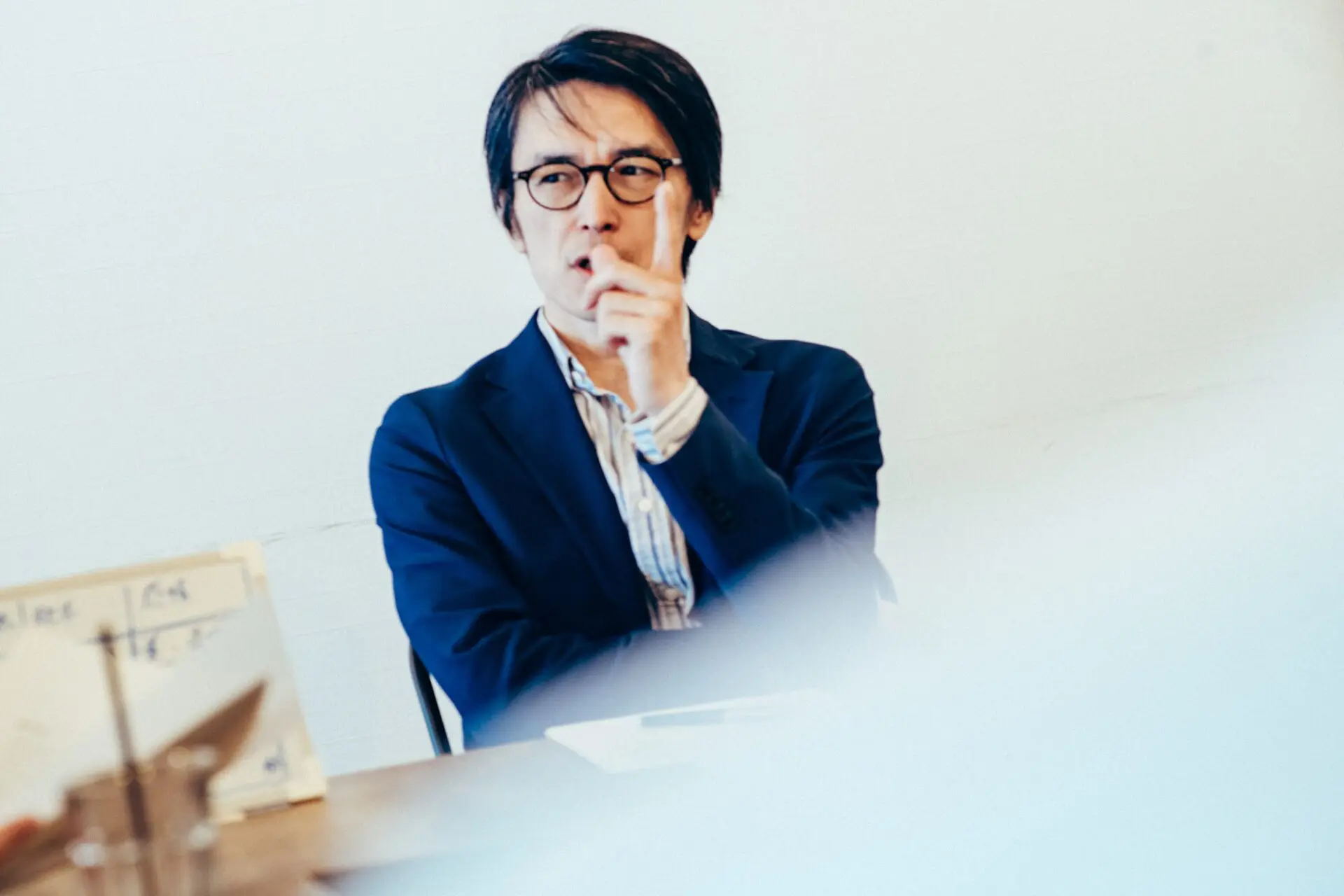Shikohin includes things like tea, alcohol, tobacco, shisha, non-alcoholic drinks and more.
What role does shikohin play in the lives of today’s youth?
In 2023, an essay contest was held for the first time where college students wrote about the themes, Shikohin in the Changing Generations, and Debating Contemporary Shikohin. The contest was sponsored by Japan Tobacco Inc. (JT) and many essays with unique perspectives were submitted.
One student commented that he reads DIG THE TEA, which led to this opportunity for us to cooperate in the event. For this article, we will be sharing the winning essays of this contest as well our coverage on a roundtable discussion held among the contest participants.
In 2021, DIG THE TEA published the article Solitude as an Essential for Human Thought: the Possibilities of ‘Shikohin.’ Interview with Philosopher Koichiro Kokubun which garnered a lot of attention. For the roundtable discussion, we invited Koichiro Kokubun, philosopher and professor at the University of Tokyo, and the award winning students to exchange their thoughts.
Professor Kokubun published an article The Pleasures of Enjoyment – A look at Shikohin, Purpose and Addiction in the July 2023 issue of Shincho where he discussed the theory of shikohin based on the philosophy of Immanuel Kant.
In part 1 of this article, we reported on Professor Kokubun’s latest lecture. For Part 2 we will be introducing three award winning essays, Professor Kokubun’s critique of the essays and the roundtable discussion with the students regarding shikohin.
Best Essay Award: Ryotaro Ushio
Title: The Solitary Pride of the Peacock
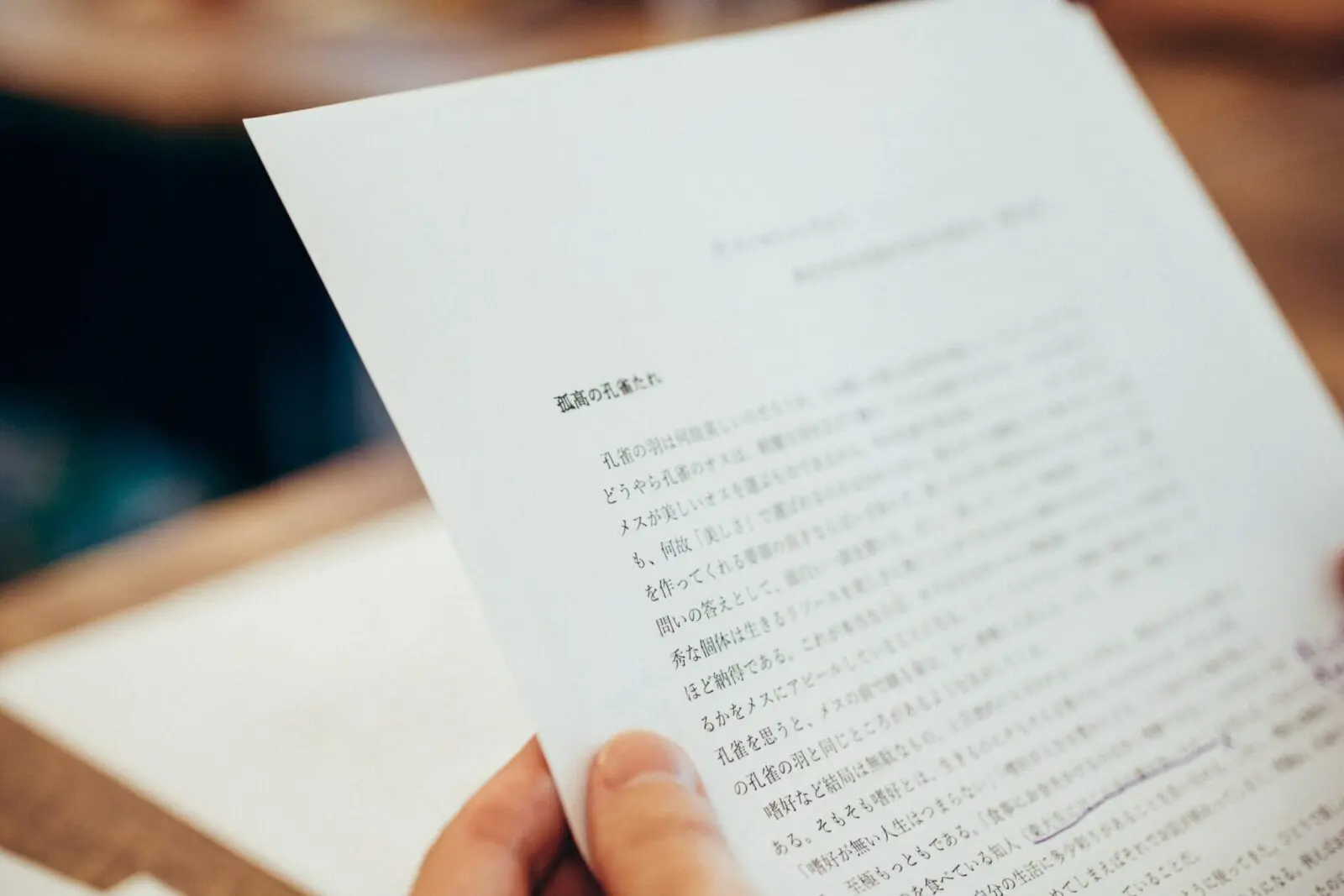
What makes the peacock’s feathers so beautiful? Science seems to be able to give us an answer to this question. According to science, male peacocks spread their beautiful feathers and dance to attract female peacocks. For a long time, female peacocks have chosen beautiful male peacocks and that is why the peacocks evolved to have the beautiful feathers they have today. Still, science cannot tell us why the females seek the more beautiful males. I can understand the reasoning behind choosing the stronger male, or a male that builds a nice home, but why choose beauty? I learned of an interesting theory regarding this question. It is said that beauty is a “wasteful” expenditure and only physically superior beings can devote their energy and resources into enhancing it. This is a convincing theory. According to this theory, the males are showing off just how wasteful they can afford to be. When I think about how the peacock has such a mass of useless weight on its body just to gain popularity, and see it dancing to court females, it all seems quite comical. It made me think about how human shikohin are similar to the peacock’s feathers.
Using the beauty of peacock feathers as an analogy, this essay explored the true nature of shikohin. In an age where everyone shares their interests and activities on social media, the essay explored the importance of enjoying shikohin alone in solitude, like a solitary peacock.
……
Kokubun: I read all of your essays with great interest. First, let’s take a look at Ushio’s essay.
You said there is a zoo where the peacocks are kept free range. Where is this zoo?
Ushio: It is the Izu Shaboten Zoo. This place was also used as the film set for the first Kamen Rider and Ultraman series. The peacocks come up close so you can take pictures of them.
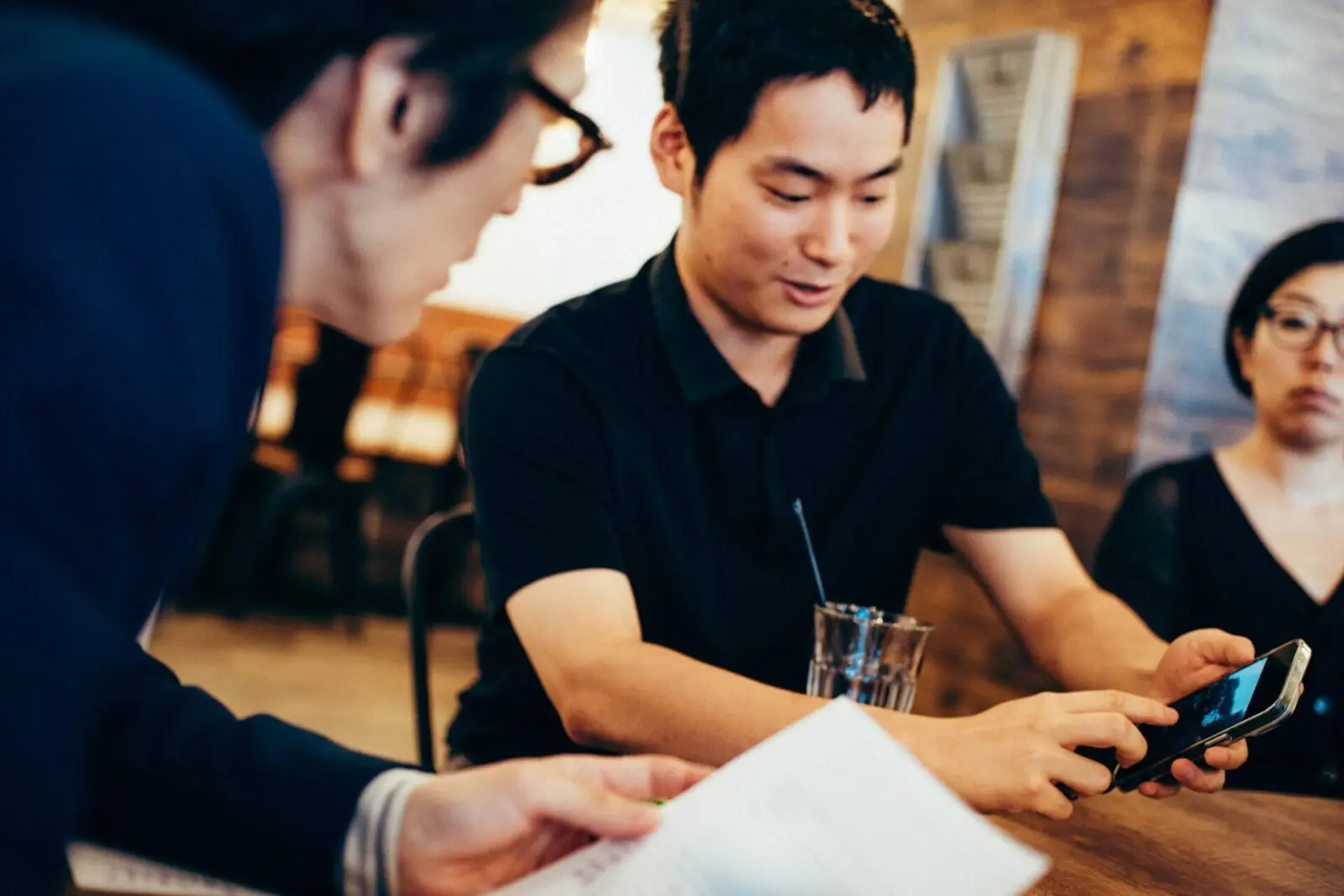
Ushio: There is also a naked mole rat here that is always running into a wall. Just like us humans living this modern society, it is running toward emptiness.
Kokubun: It’s like the people running on treadmills at the gym. A perfect metaphor for our modern society.
In your essay you wrote, “Although the proper posture of a person enjoying a cup of tea may be attractive, the way he holds the tea cup to show off his superiority is very much like the dancing peacock.”
Although I agree that there is a certain desire in the tea drinker to show off to others, at the same time I think there is also the aspect of that person creating a comfortable experience for oneself and immersing in it.
Ushio: That’s true. Perhaps it is like the Buddhist teachings of facing your inner self. To be honest, my intention of writing it so bluntly was to make a stronger impression.
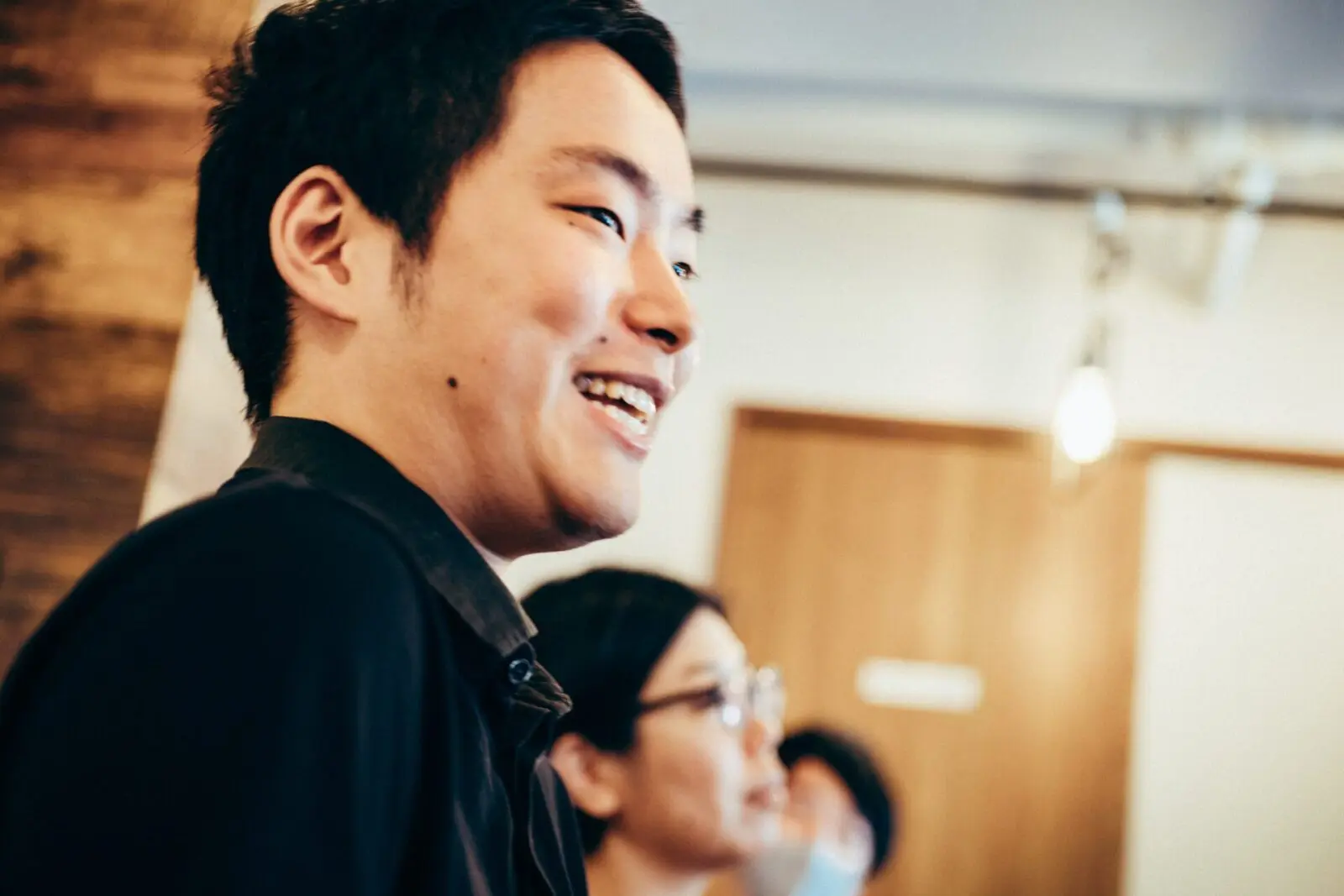
Kokubun: Yes, that is important too. There are times when putting things bluntly helps get the message across.
When I read your essay it made me think about the topic of “desire” and “instinctual drive” that I talked about before.
Today, shikohin is shared on social networks and therefore it becomes everyone’s shared experience. However, there is an aspect of shikohin that is not for the sake of getting external approval, but it is for the sake of satisfying your internal instinctual desires through enjoyment.
As I was thinking about how it would be good for your essay to include that, you wrote about the issue of “solitude” in the later half. This is a very good word. Although you may have used it as a metaphor, I think it expresses the singular human experience of enjoying shikohin very well.
Although the English translation for the Japanese word you chose “koko” may be “solitude”, this doesn’t quite encompass the Japanese meaning of the word. When I looked it up in the dictionary, it seems there is no one word in English that expresses the nuance of the Japanese meaning.
In the same way, I really struggled with translating the word shikohin into English.
Either way, the word “koko”, meaning solitude without the nuance of loneliness and with more independence and pride, was a very good fit to express your argument.
By the way, you wrote in your essay, “I know that the peacock does not have a consciousness that gives it awareness of solitude and pride”, but perhaps this is not so. Although the purpose of the peacock to spread its beautiful feathers is to attract females, perhaps peacocks also have a sense of pride and satisfaction with their appearance. Your title, “The Solitary Pride of the Peacock” is a terrific title and it makes me think that peacocks indeed have solitary pride.
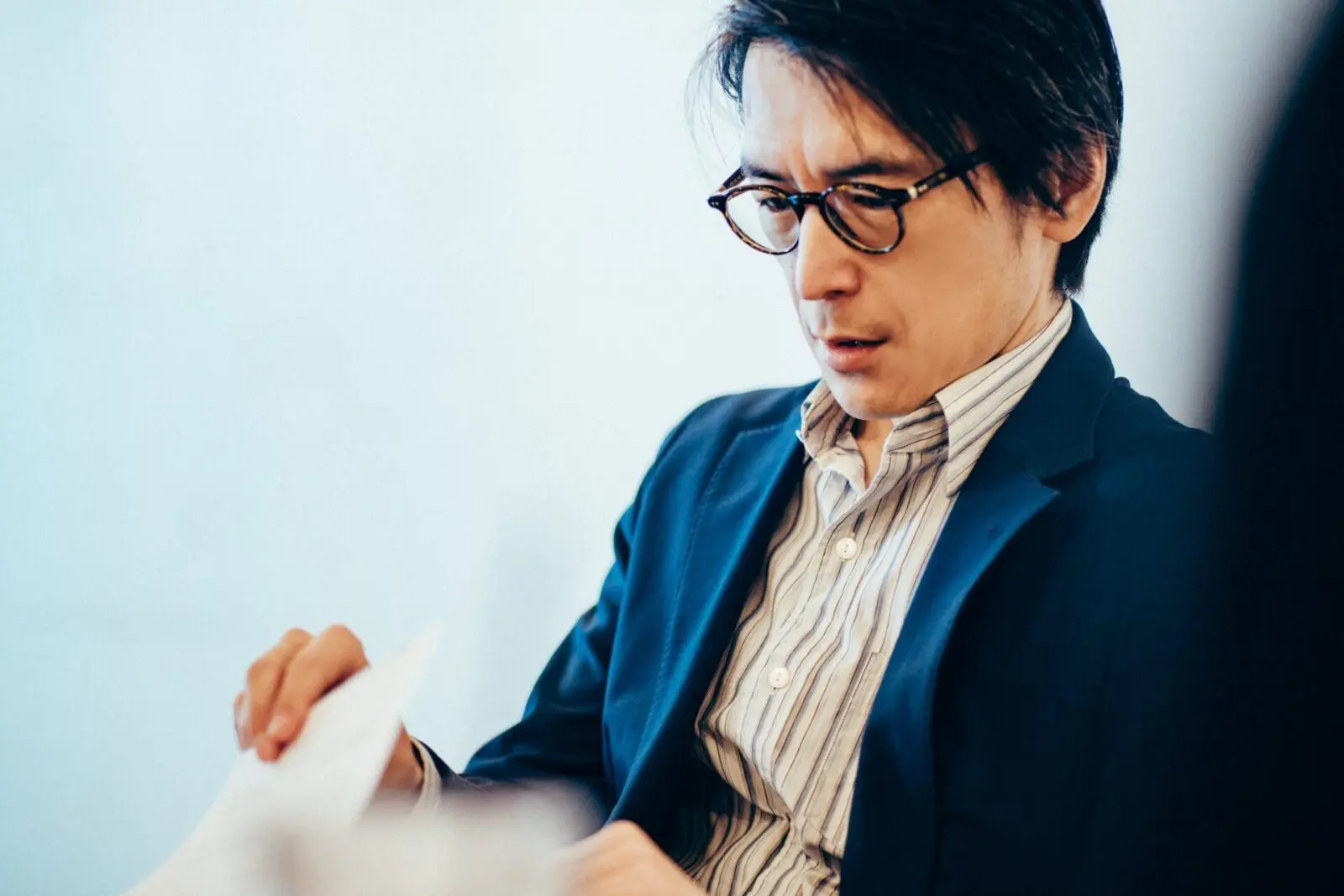
Ushio: Maybe so. Perhaps I mocked the peacock a little too much. Even if I gave the peacock such high regard, I felt some hesitation in my heart because I myself am not living such a solitary and prideful life.
Honda: Although one aspect may be to attract females, when I read the article I thought of a male peacock spreading its feathers so beautifully with pride and self satisfaction that it actually retracted the female attention.
What caught my attention was the expression that the peacock was feeling “free and peaceful” inside.
I can see that he is unbound and free, but I wondered if that would really lead to the feeling of peace. I feel that freedom comes with a sense of fragility. Not being bound by anything may also mean that no one expects anything from you and you are not being taken seriously.
What made you think the peacock felt peace in his mind?

Ushio: Peace is the impression I get when I am watching the peacocks.
People upload their filtered photos on social media today, but if someone who posted a similar picture gets more likes than them, they feel uneasy or hurt. We feel constant pressure from the gaze of others.
In terms of the previous topic, it feels like our habits are constantly being threatened.
The peacock is free of these pressures. In Rakugo (Japanese comic storytelling) there is a story of a man who accumulated so much money that he was always worried about it being stolen. In the end, the story tells how he is relieved from worry when the money is actually stolen. This was the image I had in mind when I used the word peace.
Honda: I see. So it is the idea that the peacock is at peace and free from the pressures of others. I can understand that.
Excellence Award: Yusuke Suwa
Title: The Structure of Shikohin
Perhaps it is because its theme is so diverse and so closely connected to social life that there are very few voluminous books on shikohin research. The books that are available seem to be made up of commentators expressing their personal opinion on the various topics surrounding shikohin. For example, the book For Those Who Study Shikohin Culture (published by Sekaishisosha, 2008) is an anthology of essays written by various scholars on shikohin. In this book, they not only discuss shikohin such as coffee and cigarettes that are enjoyed around the world, but also cover examples of shikohin such as kava in Polynesia that is only enjoyed in certain regions of the world. However, I believe we must be cautious of this tendency to lump all kinds of shikohin together and interpret them in the same way. The reason for this is because the role and function a shikohin plays is vastly different depending on place and time.
(Cut)
For these reasons, it must be said that interpreting all shikohin under a monolithic concept is an inaccurate practice. In this paper, I will distinguish the general modern interpretation of shikohin (a product consumed for pleasure rather than benefit) as the “original shikohin” and the shikohin that is used for ceremonies and rituals (a product consumed without choice) as “later stage shikohin”.
This essay provided an overview of the history of shikohin and argued that it can be divided in three phases, “original shikohin, “shikohin” and “later stage shikohin”. With a particular focus on the ceremonial aspect of shikohin, the essay explored the fundamental role of shikohin. Furthermore, it made the argument that the rise of dating apps in the modern world has turned “love and relationships” into a shikohin experience in itself.
…….
Kokubun: I found your essay very well written and interesting. You have constructed your argument well and you successfully introduced the concept of your new terms “original shikohin” and “later stage shikohin” into your argument. I think your arguments on “Kitsch” (meaning worthless or trashy) and “ceremonies” have a lot of room to be explored further.
Suwa: Although I felt some of my arguments were still weak, I wrote as much as I could before the deadline.
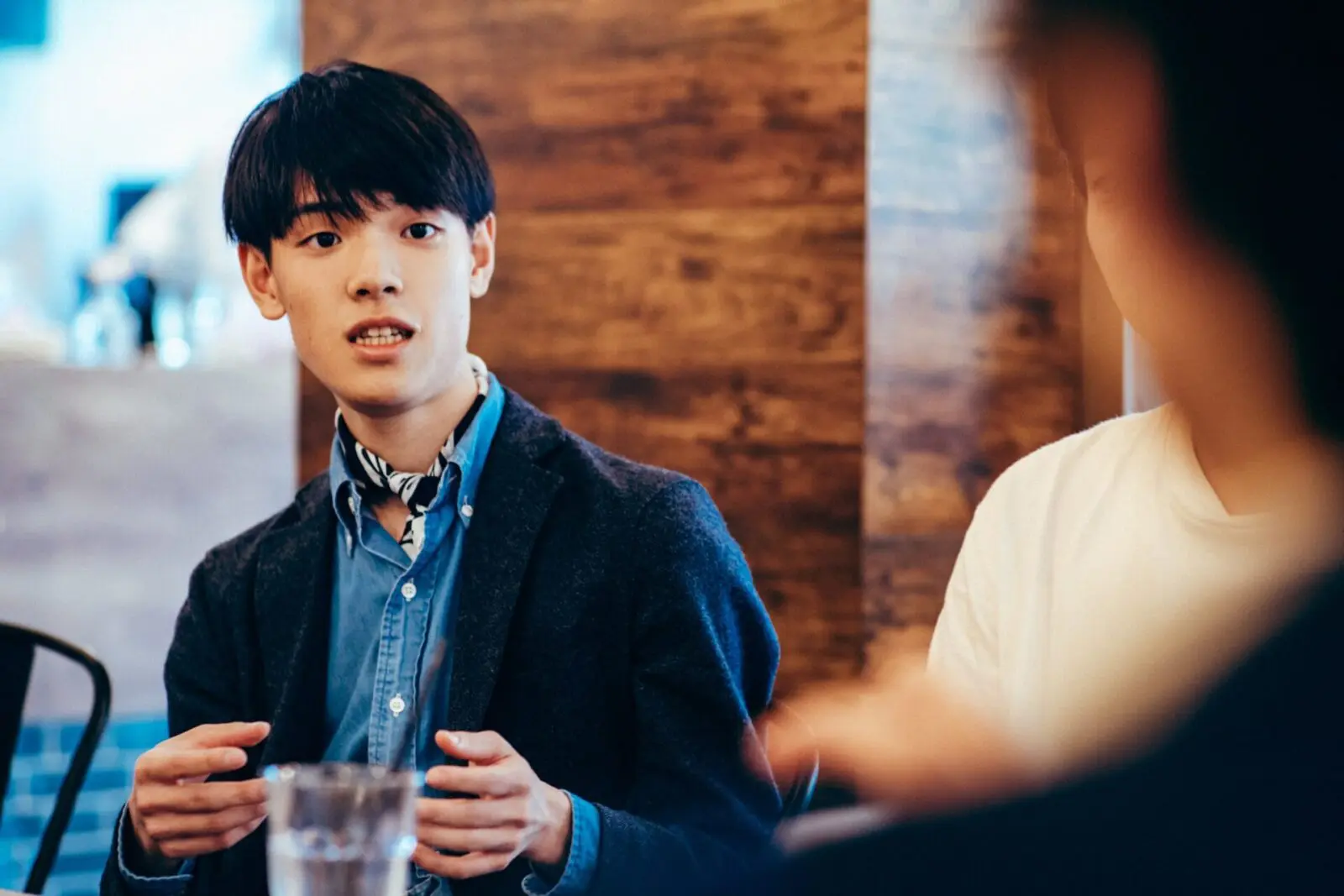
Kokubun: Your argument on ceremony and ritual was particularly important. I am sure if this was a paper for my class, you would receive a good grade.
I think that ceremony brings up the aspect of instinctual drive.
Of course there are many different kinds of ceremonies so one should not generalize, but I think the reasons they came to be are often from the need to satisfy some instinctual desire.
To put it simply, it is for human gratification. However, as time goes on and the ceremony continues, at some point people who do not want to participate will be forced to do so. In other words, it deviates from its original purpose. I think ceremonies have that kind of complexity to it.
This brings to mind a paper written by Gilles Deleuze (a French philosopher) when he was young called Instincts and Institutions.
Very interestingly he argues, “instinct and institution are the two organized forms of a possible satisfaction.”
First, with regard to instincts, let’s say you are hungry. When you satisfy your hunger you get satisfaction. This means that instinct is a direct way of obtaining satisfaction.
In contrast, he says institutions are a way of obtaining satisfaction indirectly. He gives the example of the institution of marriage which frees us from the need to look for a new partner every night. Or the monetary system, which satisfies our greed. This indirectness makes it very complex.
From this argument we can say that instinctual drive corresponds to instinct and ceremonies corresponds to institution. Looking at them through these connections may lead to a new understanding.
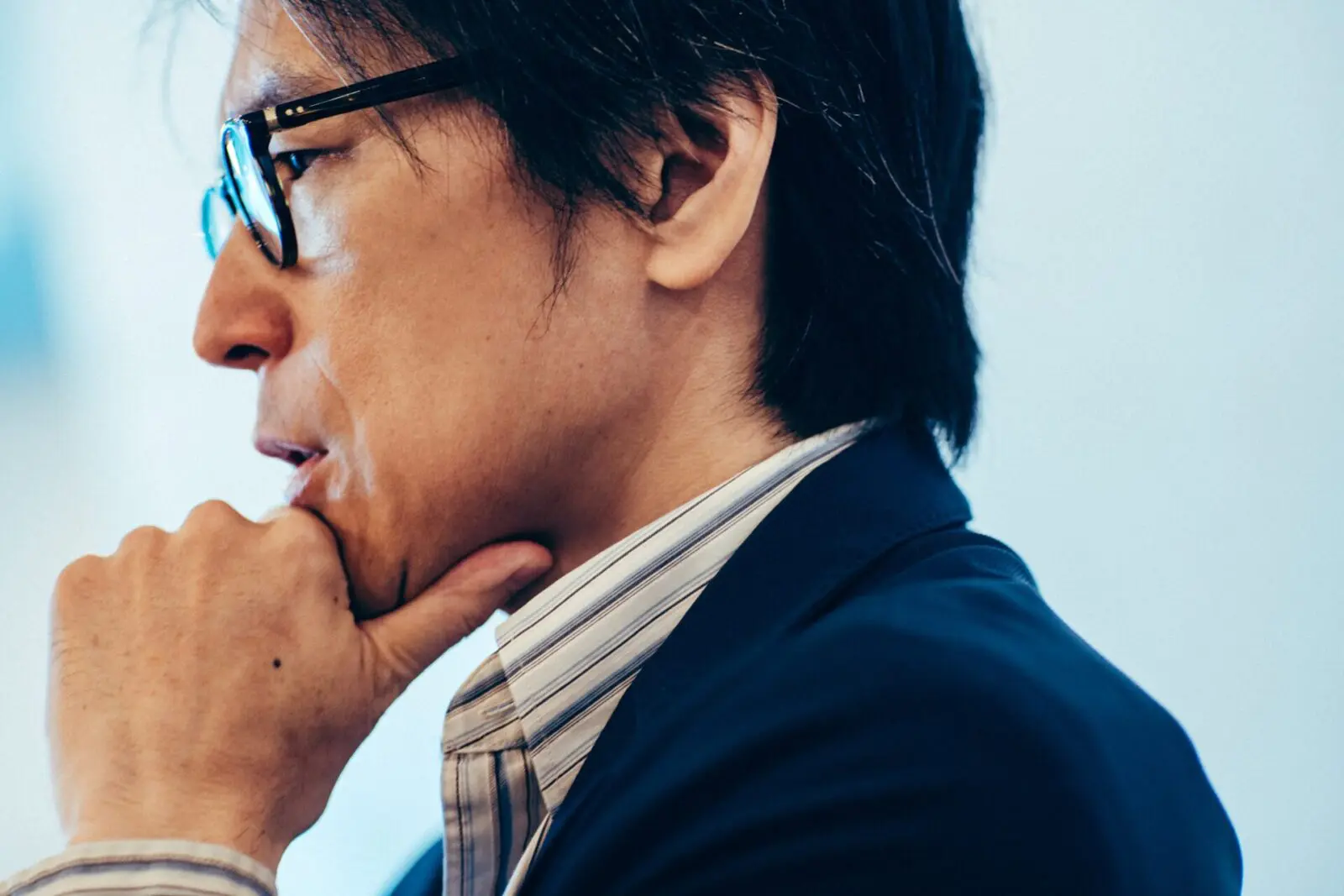
Kokubun: Cigarettes also have a ceremonial nature about them. I am resistant to using heated tobacco products because I am not looking to replace the object in my hand. It is the cigarette I want to hold and the cigarette gives the action its meaning.
Suwa: What about pipes?
Kokubun: I used pipes often when I was studying abroad. It warms up while you hold it in your hand and that feels good. It also tastes good. The choice of what shape pipe someone uses also says a lot about that person’s habits.
Takagi: This is something I thought about in the discussion about “solitude”. I think there is an aspect about shikohin that gives us affirmation on who we are and brings us back to our habits.
Kokubun: I agree. Or it gives us affirmation while we develop ourselves.
In other words, there is no way to distinguish between affirmation and development. Habits are like that.
A continued act is what develops a habit in the first place and that continuation also brings meaning in our lives. I think these topics give us a lot of insight.
── The idea that dating apps are turning love and relationships into a kind of shikohin was very interesting.
Suwa: Although I was a bit unsure about this, I thought it was worth exploring. At the end, I discussed dating apps in a bit of an off-topic kind of way.

Kokubun: I am still contemplating my thoughts on dating apps.
In my talk with comedians Masayasu Wakabayashi of Audrey that we did for the literary magazine Bungakukai, they mentioned how middle-aged doctors are hugely popular among young women on dating apps.
In other words, I think this shows how the market economy has entered the realm of love and relationships.
In the past there were many more restrictions when it came to both money and love and relationships.
For example, in the 1960s there was a limit to the amount of cash one could take on an overseas trip. This was because it was problematic to have too much cash exiting the country. The current model of globalization, where massive amounts of money moves freely between countries, was unthinkable at the time.
The same was true for love and relationships. There were many restrictions and people were not necessarily free to choose.
People of different social status could not get married and once people reached a certain age they were forced to get married through arranged marriages. The reason for this was because of regulations put in place so that no one was left out of the system.
We cannot go back to the pre-modern ways with such restrictions and regulations. Of course none of us want to be forced into an arranged marriage or not be allowed to marry because of social status.
However, this does not mean that the current world that is dominated by the market economy is without problems. Is this really the kind of freedom that we desired?
Although I think we can look at dating apps through the topic of shikohin, I look at it more through the theme of the ambivalence of freedom in the modern age.

Special Award: Saori Takagi
Futon and my search for self
I do not like the cold. Cold weather makes me sad. It makes me feel like a miserable being. Nonetheless, I must face the cold wind outside. There was a thick down coat that I loved. I loved it because it was packed and heavy and it prevented any cold wind from reaching my body. The thickness and weight of the coat was comforting and encouraging. For seasons that are not as cold, the corduroy jacket was also a nice choice. The bulky and thick fabric was soothing. I find that traditional styled clothes suit me because I am a bit old-fashioned.
However, a few winters ago I put on the coat that I loved so much. It was so heavy and not the coat I remembered it to be.The design looked frumpy.
I went through my closet and found that most of the clothes I had looked the same. It was clear that my taste in clothes had changed over the last year. What triggered this change in me? Thinking back, a certain episode came to mind.
This essay talked about how our tastes and preferences change unconsciously as we are influenced by our surroundings and environment. The writer used her own experience on how changing her blanket from acrylic and cotton to a luxury down comforter may have influenced a change in her preferences in clothes and even her future career goals and decision to attend graduate school.
…….
Kokubun: Your argument was very well written in this essay.
Takagi: As we talked about before, I think that there is a self-affirming aspect of shikohin. This is why we mistakenly assume that we have some control over ourselves and surroundings. I wrote about my experience of learning how we can be influenced by things that are outside our intention.

Kokubun: The essay is well written, but I thought you did not necessarily have to base your argument solely on scientific evidence, like they do with cognitive psychology.
We are living in a world of extreme democratization and even the world of academia is democratizing. Even if a genius like Sigmund Freud were to make a speculative observation, today he would be told something along the lines of “that is just your personal impression.”
If there was some kind of experiment that showed evidence that “68 out of 100 people” showed the same result, then people would accept the statement. Everything is being accepted as long as it wins the majority vote. I think we should be a little more critical about the fact that so much value is put on evidence based science.
In your essay you talk about taste or preferences, rather than shikohin in terms of product.Taste means to savor something and it can also mean a personal interest. In that sense, I think it is correct to interpret it as a shikohin experience.
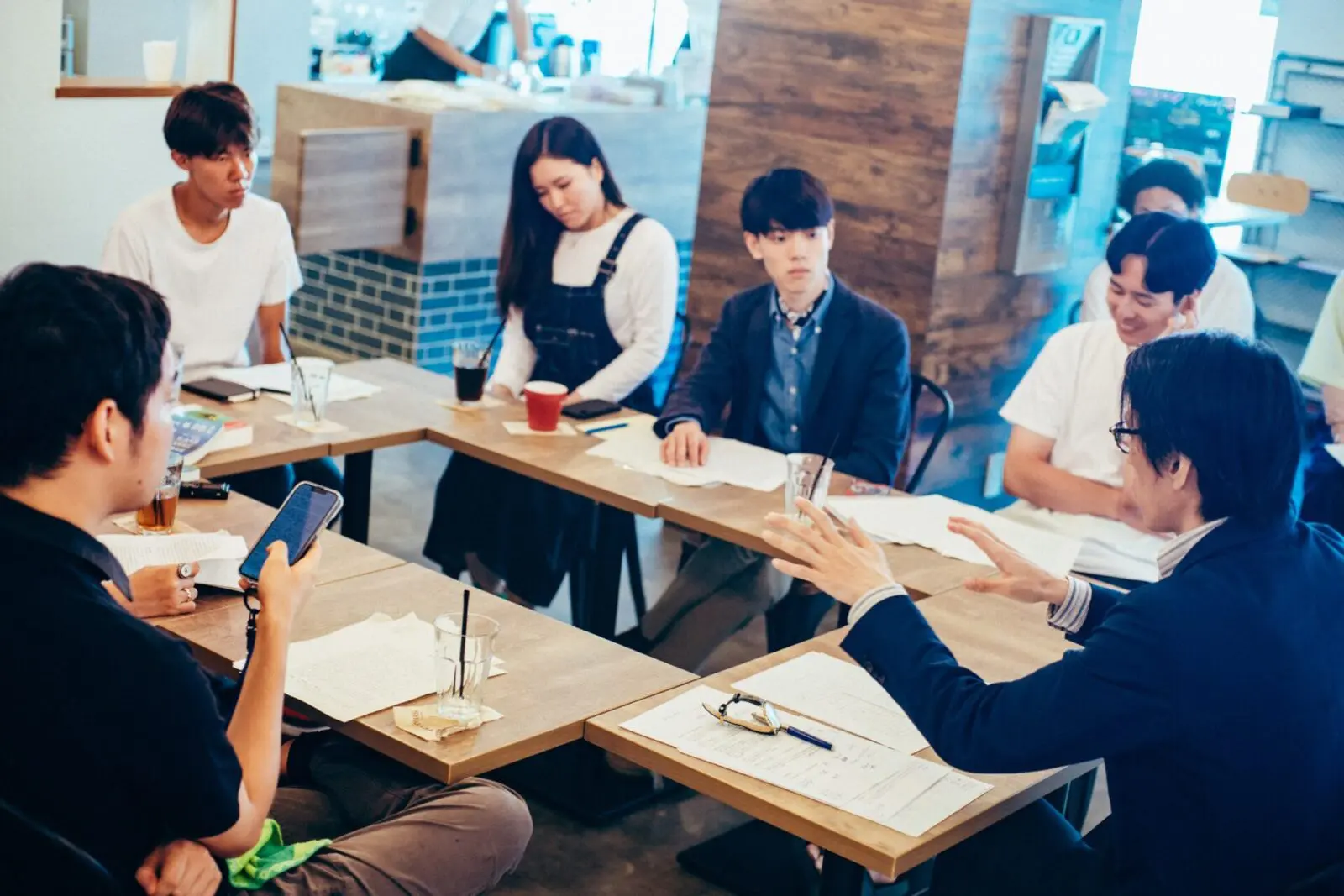
Kokubun: When I write about shikohin theory, I don’t consider the issue of taste that much, but you made me realize that it is an important topic.
Giorgio Agamben (an Italian philosopher) has a book titled “Taste” and he argues that taste is in fact a hidden and important philosophical topic.
You write that taste and preferences change through various influences and if that is the case, what happens to the existence of self?
According to my research on Baruch Spinoza, all humans are influenced by external stimuli in their actions. However, even if people are given the same stimuli, each person will react differently. Even the same person will act differently depending on the timing or situation.
I think it is this difference in reaction that signifies a person’s individuality and essence.
Takagi: We are all individuals and various influences are given to us in life as we accept coincidences. However, somehow we think that there is a certainty about our “self” and it is difficult to contemplate the idea that we are continuously influenced by external coincidences.
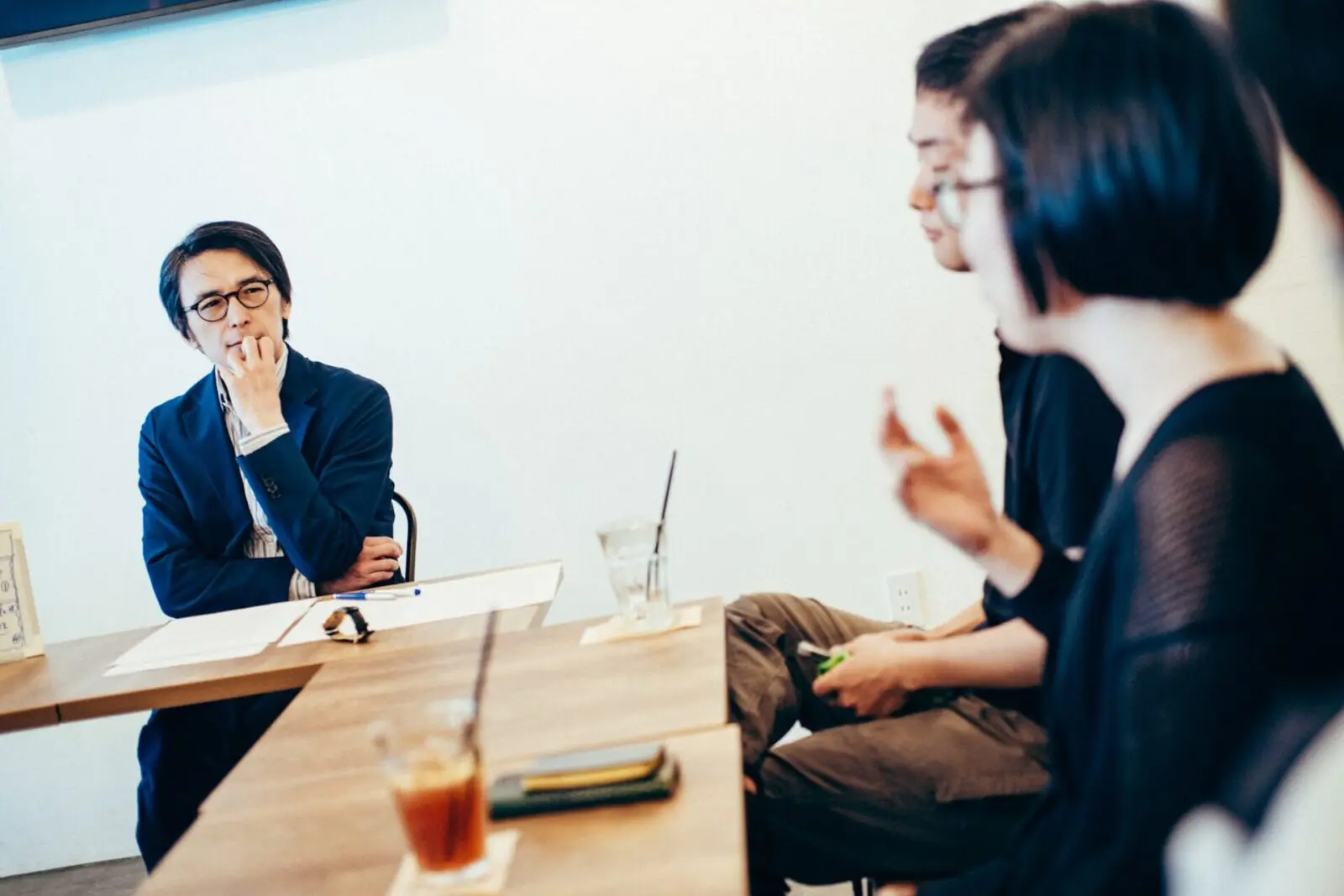
Kokubun: Humans cannot live without external stimuli. It is the same as breathing in oxygen and eating. Sometimes we receive intellectual stimulation. I think all of these things are coincidental by nature.
I liked how you wrote about your own existential crises in your essay. The act of changing your bedding led to a change in the way you thought about your career and decision to go to graduate school.
Even if I experienced the same thing, it may not have led to making such major life choices. However, this experience had a big influence on you and that is an expression of your individuality. I think that is the big takeaway from this experience.
Translation: Sophia Swanson
Photo: Kaori Nishida
Born in 1990, Nagasaki. Freelance writer. Interviews and writes about book authors and other cultural figures. Recent hobby is to watch capybara videos on the Internet.
Editor and creator of the future through words. Former associate editor of Huffington Post Japan. Became independent after working for a publishing company and overseas news media. Assists in communications for corporates and various projects. Born in Gifu, loves cats.
